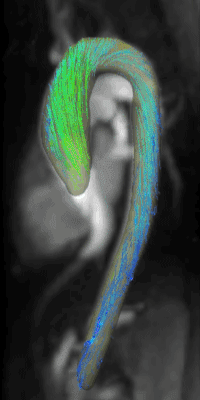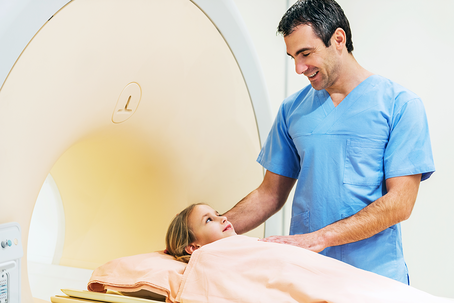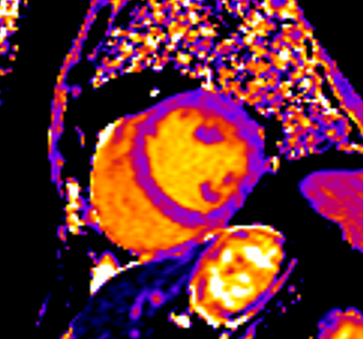One test. Many answers.A HeartMRI, also called “cardiovascular magnetic resonance” (CMR) imaging, is a way to take clear pictures and videos of the human heart. It can be used to measure the size of the heart and how well it functions.
A HeartMRI can also be used to measure the amount of blood flow, aorta and other large vessels. A HeartMRI can create a 3D image of the heart to determine if heart disease is present, what heart disease is present, and why. In short, a HeartMRI is one test that provides many answers that can help a physician to diagnose a heart condition, and provide a prognosis to achieve the best treatment for patients. |
No surgery,
|
Advanced diagnosis means better prognosis.A HeartMRI allows physicians to provide a more accurate diagnosis and prognosis, helping them to determine the most appropriate treatment path for their patients. HeartMRI is able to identify different types of scar patterns in the heart that is not possible with other imaging tools. The clear detailed images of a HeartMRI can reveal different types of heart problems. This includes heart defects that were present from birth, problems with the heart valves, heart tumors, inflammations, coronary artery abnormalities, and various heart muscle diseases. HeartMRI can also measure chamber size, blood flow more reproducibly compared to other imaging tools. More importantly, it allows your physician to treat the cause ― from prescribing proper medications to addressing a heart or cardiovascular event, or to recommend another medical test.
|
Ask your doctor.Regular check-ups and care are essential for living a healthy life. If you're having symptoms concerning for heart disease, and your doctor is having trouble identifying the cause, HeartMRI can be a part of your medical assessment to help diagnose a variety of cardiovascular diseases.
Although useful in evaluating many cardiovascular conditions, a HeartMRI is appropriate in specific situations. Check our other patient information pages to see if you are a good candidate for a HeartMRI, and always consult your physician. |




